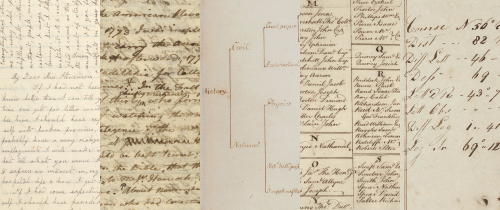Fitting Form to Argument: Developing a Digital Publication for the Complexity of Harlem in Disorder

MHS Event
Author: Stephen Robertson, George Mason University
Comment: Jessica Marie Johnson, Johns Hopkins University
This is an online event.
Stephen Robertson’s granular data-driven analysis of events produced an interpretation of the racial disorder in Harlem in 1935 as a complex mix of attacks on white individuals and property and police violence. The print monograph was not a tenable form for such an interpretation as it requires arguments that are selective rather than inclusive in both their evidence and argument. Instead, building on digital historians’ experiments in the 1990s, Robertson used the digital publishing platform Scalar to create a multi-layered, hyperlinked narrative that connects different scales of analysis: individual events, aggregated patterns, and a chronological narrative. Enacting a humanities approach to data, each event has a page that describes the interpretive choices made in determining its features and names and identifies the individuals involved. Events are aggregated and incorporated into the narrative using Scalar’s tags, which link to pages that offer a site for analysis and interpretation not just connection and collection. Clicking on tags moves a reader across the dense web of connections that they create, drawing out threads of argument and intertwining them reveal the complex character of the racial violence in 1935.
Join the conversation at the L. Dennis Shapiro and Susan R. Shapiro Digital History Seminar. Seminars bring together a diverse group of scholars and interested members of the public to workshop a pre-circulated paper. Learn more.
Purchasing the $25 seminar subscription gives you advance access to the seminar papers of all seven seminar series for the current academic year. Subscribe at www.masshist.org/research/seminars. Subscribers for the current year may login to view currently available essays.
Online Event
The virtual seminar begins at 5:00 PM and will be hosted on the video conference platform, Zoom. Registrants will receive a confirmation message with attendance information.
